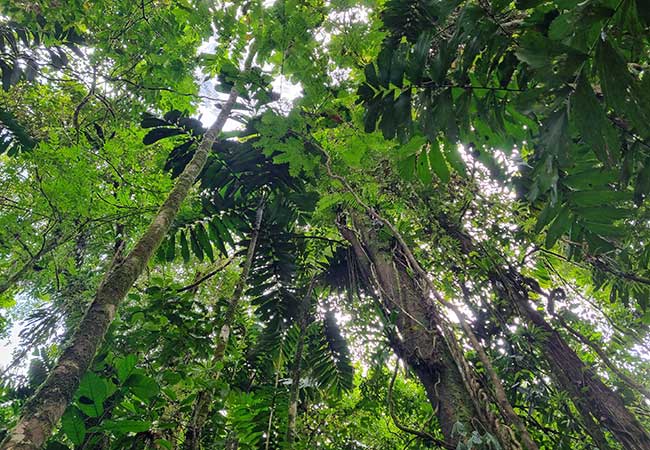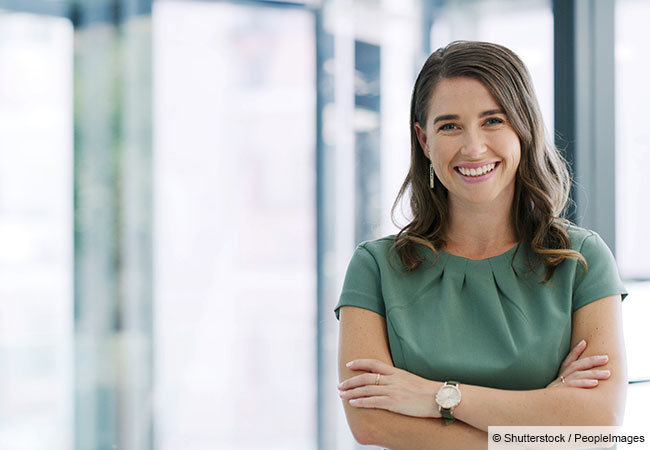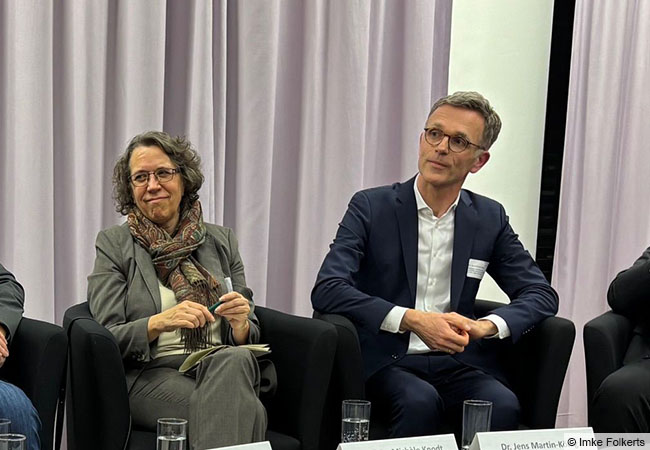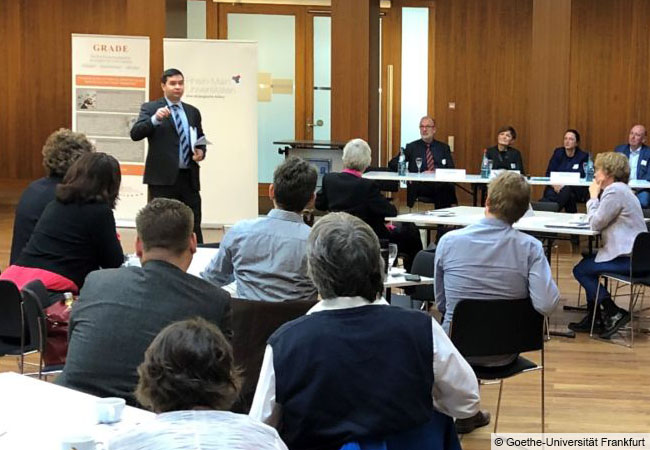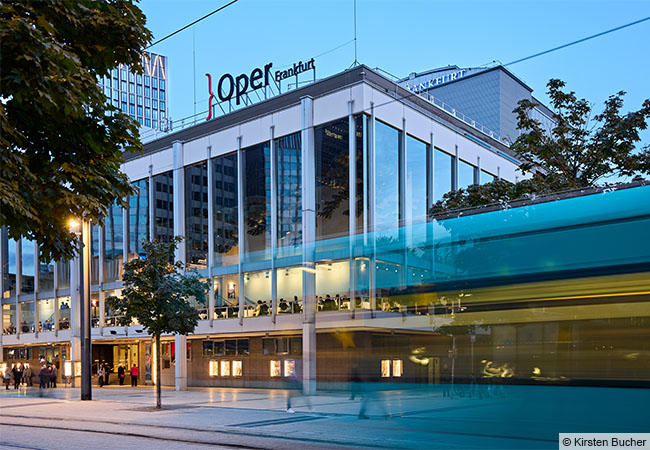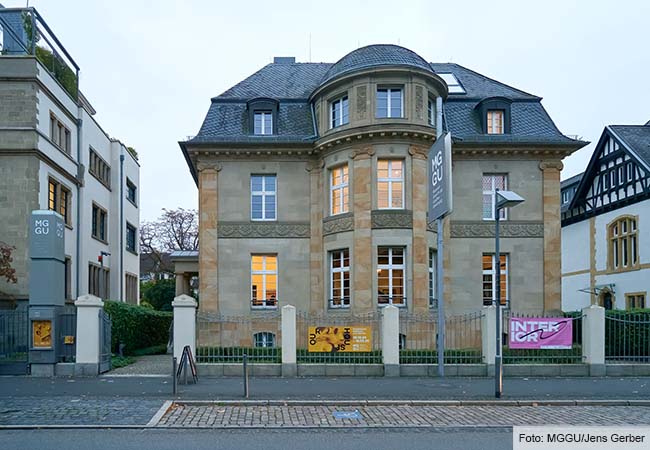From Kabul to Kyiv: 50 individuals, 50 life stories, 50 different perspectives on the future
On October 1, the Academic Welcome Program (AWP) for highly qualified refugees began its new semester by welcoming 50 refugees, who will now commence their study-preparatory German language courses. Participants in the Hesse state-supported program, which Goethe University Frankfurt launched in 2015 during the height of the refugee crisis that swept Europe, also have access to a wide range of other support services, including opportunities for social networking.
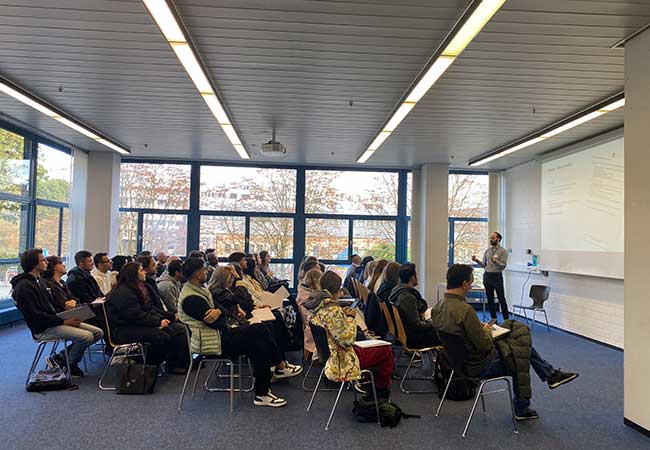
Tuesday morning, 9 a.m., Campus Bockenheim. The large room with the windowfront facing Bockenheimer Warte is filled with people of different backgrounds and ages. At least three things unite them: They are all refugees, they all want to prepare for their university studies, and they all secured one of the places in the Academic Welcome Program’s 2024/25 winter semester. In addition to those already enrolled in the AWP, demand for which remains high, the Goethe University Frankfurt-run program currently has close to 100 participants.
Paul Scherer, who heads the Academic Welcome Program in Goethe University’s Global Affairs Study and Teaching Department, explains to those present what exactly this means for them, what rights and obligations arise as a result and which optional offers are available. Together with his team – AWP staff members Alberto Atha and Pedro Schlepper, as well as student assistants Elena Terekhina and Johannes Nebe – Scherer guides the new AWP participants through the four core program elements: free intensive German language courses, advice on studies and career, social counseling and support, as well as access to university infrastructure.
Creating the basis: Intensive German courses as well as advice on studies and careers
As part of their application, all newly admitted AWP participants had to provide proof of at least a B1 German language certificate. Experience has shown that many participants are downgraded after the placement test, Scherer explains to those present, adding that this is due to the high level of the courses offered by Goethe University’s Internationales Studienzentrum (ISZ), which are geared towards German as an academic language. Rather than feel discouraged by this, Scherer encouraged participants to speak German in private as much as possible. “Make mistakes and learn from them.” Due to high demand and the five-week course rhythm, some courses start at the beginning of October, while others do not begin until mid-November.
Beyond the language component – with the courses provided by ISZ, AWP’s main partner – the program also offers guidance on choosing a field of study, gaining access to the Studienkolleg preparatory college for university admission, as well as on training and career options. In response to the question of how long it takes to complete the AWP with the so-called Deutsche Sprachprüfung für den Hochschulzugang (DSH) German language proficiency exam – a prerequisite for university admission in Germany for non-native German speakers – Scherer points to the five-week course duration. “Those of you starting at B1.2 level will need approximately 40 weeks – almost a year – before you can take the DSH exam. With B1.3-level language skills, it might already be possible in about 30 weeks.”
Depending on the type of university entrance qualification (Hochschulzugangsberechtigung, HZB), participants can take various paths towards university admission. Those with a direct HZB for a specific field of study begin preparing for the DSH exam once they have reached German level C1; once they pass the university entrance qualification exam, they can apply for a place at a German university. As part of a separate process, those AWP participants with an indirect HZB apply for a one-year Studienkolleg, which precedes their academic studies, and at the end of which they are required to pass a subsequent placement exam that grants them access to their respective field of study at a German university. Access to the Studienkolleg is highly competitive, Scherer points out, emphasizing that German language proficiency is the key factor for admission into the Frankfurt Studienkolleg.
Different levels exist for the DSH German language proficiency exam. University studies generally require a DSH-II level, although those wishing to study medicine at Goethe University need a DSH-III qualification or an equivalent language certificate, Scherer explains. That is why the AWP offers a wide range of support for study and/or career choices, providing targeted information on the respective admission requirements, he adds. The program also works closely together with many other advisory services, such as the Central Student Advisory Service or the Academic Counseling Services in the university’s faculties as well as dedicated external service points in Frankfurt and the wider region. “We are here to help you find the right preparation for your academic path in life.” Some of the new participants have already obtained a first university degree in their country of origin, including three Afghan refugees, who cannot or are not allowed to continue their studies in their home country – also because some of them are female – or Ukrainian refugees from Kharkiv, Mariupol and Kyiv. All would like to continue their studies as part of a Master’s program or change their field of study thanks to the wider range of choices available to them in Germany.
Accompanying services: Social counseling and support
The AWP, currently funded and enabled jointly by the Hessian Ministry of Science and Research, Arts and Culture (HMWK) and Goethe University Frankfurt, also has an important social element, which consists of various voluntary offerings. One is the Buddy Program, which connects AWP participants with students from Germany. It is supported by Johannes Nebe, who is currently pursuing his Master’s degree in Theater, Film, and Media Studies at Goethe University Frankfurt and has been working as a student assistant at AWP for a year. “During our matching, we focus on commonalities – whether in terms of faculties and academic interests or hobbies,” he tells the audience. The goal is to practice German together, build new friendships, learn about other cultures, and possibly also gain insights into university life. In addition to helping in the peer-to-peer matching, Nebe also organizes weekly gatherings of these student buddies: “These might be cooking or game nights, museum visits, or picnics.” He adds that thanks to the program’s funding and a partnership with Places2See, these regular meetings are free of charge. The recurring AWP Language Café is another great place for networking and practicing language skills.
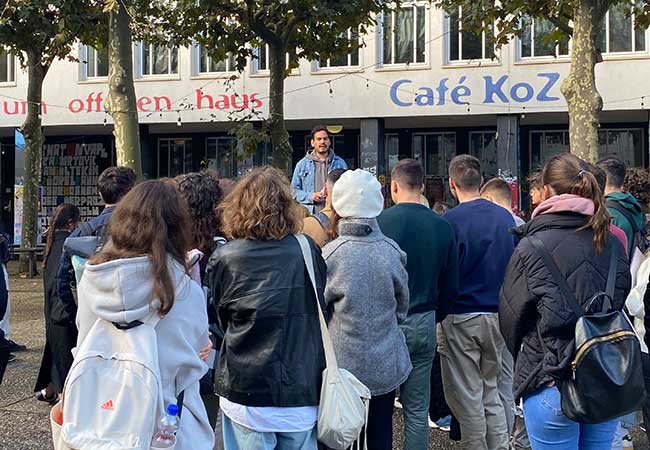
In addition to this socially inclusive component, the AWP’s support portfolio also includes referrals to services offered by the Counselling and Therapy Center for Refugees (Psychologische Beratungsstelle für Flüchtlinge, PBF) at Goethe University Frankfurt’s Center of Psychotherapy, and the Goethe Uni Law Clinic (GULC). While the PBF provides free, confidential psychological counselling in multiple languages and can refer clients to further support if needed, GULC’s experts offer all refugees legal advice with a focus on both migration and social law. Scherer also tells the new AWP cohort about Goethe University’s Anti-Discrimination Office, where confidential, and, if desired, anonymous counselling is available to them should they feel discriminated against within the university context.
Beyond that, refugees already enrolled at Goethe University can also contact the Service Center Studies and Refugees, headed by Pedro Schlepper, where they receive advice on scholarships available to refugees in Hessen and across Germany, as well as on asylum law questions that arise due to the change in their status as students.
AWP participants with a German level of B2 or higher may also attend Goethe University lectures and seminars as guest auditors free of charge. This allows them to engage with academic content while deepening their language skills, thereby optimally preparing them for their future studies.
“Last but not least, you will soon receive your own Goethe Card,” Scherer concludes this semester’s AWP introduction. “In addition to access to the libraries, PC rooms, and the university’s WiFi (eduroam), it also offers free entry to the Palmengarten and discounted admission to museums.”
With the Academic Welcome Program (AWP) for highly qualified refugees, Goethe University is creating a framework that supports the integration of highly qualified refugees of all nationalities at the university, while at the same time also contributing to the recruitment of skilled workers in the region. Access to German language courses as well as university education, networks and infrastructure open up future prospects for refugees and enable exchange and participation. More than 700 people have already taken part in the program since its launch in the 2015/16 winter semester.


